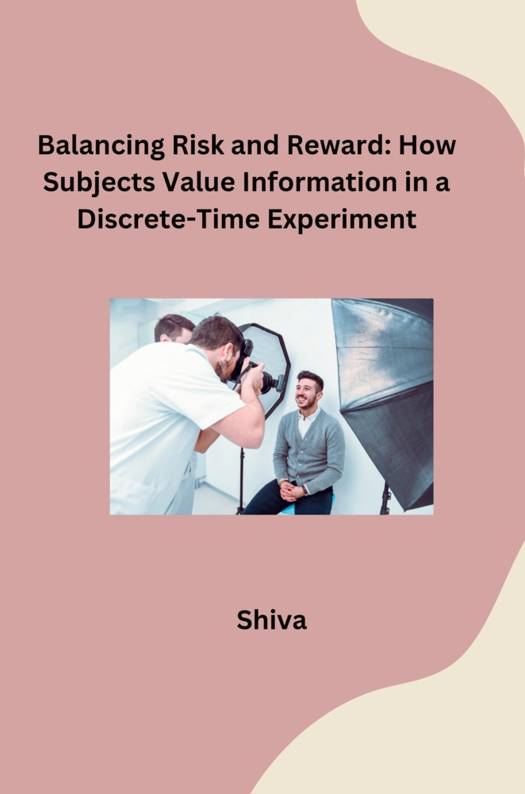
En raison d'une grêve chez bpost, votre commande pourrait être retardée. Vous avez besoin d’un livre rapidement ? Nos magasins vous accueillent à bras ouverts !
- Retrait gratuit dans votre magasin Club
- 7.000.000 titres dans notre catalogue
- Payer en toute sécurité
- Toujours un magasin près de chez vous
En raison de la grêve chez bpost, votre commande pourrait être retardée. Vous avez besoin d’un livre rapidement ? Nos magasins vous accueillent à bras ouverts !
- Retrait gratuit dans votre magasin Club
- 7.000.0000 titres dans notre catalogue
- Payer en toute sécurité
- Toujours un magasin près de chez vous
Balancing Risk and Reward: How Subjects Value Information in a Discrete-Time Experiment
DE
Shiva
Livre broché | Anglais
27,95 €
+ 55 points
Description
Expected Utility Theory (EUT): This framework assumes individuals choose actions that maximize their expected utility. Information can be valuable because it reduces uncertainty about future outcomes, allowing for more informed decisions and potentially higher utility [1]. Prospect Theory: This theory builds upon EUT, recognizing that individuals exhibit loss aversion and a preference for avoiding losses over acquiring gains of equal value [2]. Information can be even more valuable in situations where it helps avoid potential losses. Bounded Rationality: This concept acknowledges that individuals have limited cognitive resources and may not always make perfectly rational decisions. Information can be valuable because it simplifies complex choices and reduces the cognitive effort required to make optimal decisions
Les avis
Nous publions uniquement les avis qui respectent les conditions requises. Consultez nos conditions pour les avis.







